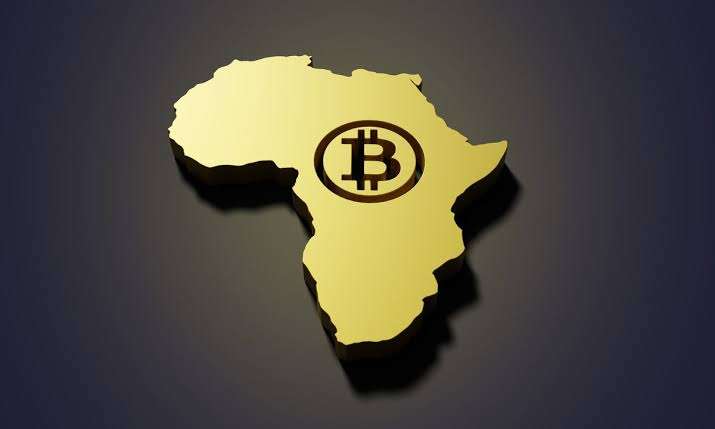African crypto startups are rewriting the rules of money, mobility, and innovation. Across the continent, these platforms are solving problems from unstable currencies and exorbitant remittance fees to cross-border trade barriers.
The rise of these startups represent a digital finance revolution tailored to the continent’s realities: mobile-first populations, underbanked communities, and a new generation eager for tools that give them control over their money.
Here, Techparley takes a deep dive into the ten African crypto startups making the biggest impact in 2025, and why they matter now more than ever.
1. Roqqu
Founded in Lagos in 2018, Roqqu is one of the fastest-growing African crypto startups, with over 1 million registered users and more than 250,000 daily active users. The company offers over 58 cryptocurrencies and has facilitated more than 20 million transactions to date.
Roqqu recently acquired Kenya-based Flitaa, a move that secured M-PESA integration and East African market access. With operations now in Nigeria, Ghana, and Kenya, and expansion plans for Uganda, Rwanda, and South Africa, Roqqu is positioning itself as a continental exchange for everyday Africans.
2. Mazzuma
Mazzuma is Ghana’s flagship blockchain payments company. It integrates with telecom giants like MTN and Airtel to allow users to pay for utility bills, airtime, and transport using its native token, MAZ. Its 300,000-strong user base speaks to its success in embedding crypto into daily commerce.
Mazzuma is also exploring AI-enabled smart contracts for micropayments and blockchain-based identity verification. Its dual strategy of telecom partnerships and blockchain innovation positions it uniquely among African crypto startups focused on domestic use cases.
3. Quidax
One of Nigeria’s first crypto exchanges, Quidax has grown to over 400,000 users. It brought innovation through its native QDX token on Binance Smart Chain and Quidax Pro platform. Coupled with an API suite for fintech integrations, Quidax is actively positioning itself as a backend engine for financial services platforms that want to integrate crypto features.
By offering its API infrastructure to partners in payments, remittances, and DeFi, it is evolving from a standalone exchange to a business-focused crypto infrastructure provider. Its cross-border aspirations include EAC region outreach and potential partnerships with key fintech platforms.
4. Nestcoin
Nestcoin focuses on decentralised consumer products rather than just trading. Its Onboard wallet and decentralized content tools are designed for African content creators, artists, and freelancers seeking crypto-native monetisation tools.
Nestcoin’s long-term play is Web3 independence for African communities. By building infrastructure for tipping, NFT creation, and token-based governance, it’s showing a different side of African crypto startups, one centred on creativity and decentralisation, not just financial transactions.
5. VALR
VALR found early success by addressing the institutional gap in South Africa’s crypto infrastructure. Regulated by the FSCA, VALR offers advanced traders access to spot, margin, and futures trading, as well as staking services, features often missing from emerging market exchanges.
As one of the few African startups audited and licensed for high-volume trading, it assures both retail and institutional clients of operational integrity. Its emphasis on education gives it a competitive edge, making VALR a bridge between Africa’s crypto enthusiasts and the global crypto economy.
6. Bitmama
Bitmama specializes in stablecoin rails and virtual dollar cards, particularly useful in markets with currency volatility. Its suite of tools enables African freelancers, merchants, and informal traders to conduct global commerce via USDT.
Operating in three countries, Bitmama is increasingly focused on B2B financial services, offering APIs for app developers and payment platforms. By positioning itself as a base layer for African Web3 commerce, Bitmama is tapping into the remittance and invoicing needs of structures often overlooked by banks.
7. Yellow Card
Yellow Card operates in over 20 African countries, enabling users to convert local fiat currencies into stablecoins like USDT and USDC. This model helps individuals avoid exchange rate volatility and high remittance fees, challenges that plague many African economies.
By partnering with central banks and offering community-focused workshops, Yellow Card has built trust in markets like Cameroon, Botswana, and Kenya. Its evolving product roadmap includes merchant wallets and invoicing solutions, positioning the startup as a formidable pan-African payments player.
8. Busha
Busha has carved out a niche by prioritizing user education and financial literacy alongside simple trading tools. Its intuitive interface, paired with content explaining topics like staking, passive income, and crypto basics, makes it a trusted entry point for first-time users in Nigeria and Ghana.
By embedding crypto services within everyday financial tools, Busha hopes to foster sustained adoption. Its future roadmap includes adding card payments and micro-savings features to compete more directly with traditional savings platforms.
9. Mara
Mara is building a Web3 infrastructure ecosystem rather than just an exchange. Mara’s platform includes both custodial and non-custodial wallets, developer APIs, token launch tools, and educational content designed for mainstream adoption.
Mara’s core strength lies in developer-centric growth. By enabling African teams to build wallets, mint tokens, and engage with blockchain, it fosters a local developer ecosystem. Its dual presence in Nigeria and Kenya gives it geographical leverage, allowing it to test and adapt its tools to diverse regulatory and market dynamics.
10. Bundle Africa
Bundle Africa offers a social-centric crypto and fiat wallet with peer-to-peer transfer features. The startup reached over 650,000 users before retrenching in 2023 to reassess its product-market fit, especially in the payments and blockchain innovation space.
Post-restructure, Bundle is re-emerging with tight focus on merchant payments and decentralized finance tools for everyday use. Leveraging its previous experience with Binance’s blockchain ecosystem, Bundle aims to re-enter the market as a tool for small payments and micro-transactions.
Frequently Asked Questions (FAQs)
What are African crypto startups?
They are fintech companies in Africa building platforms for crypto trading, payments, remittances, NFTs, and blockchain infrastructure.
What are the top African crypto startups?
Leading names include Yellow Card, VALR, Roqqu, Busha, Mara, and Quidax, all serving different regions and needs.
Is cryptocurrency legal in African countries?
Yes in most countries, but laws vary. South Africa and Kenya are developing frameworks, while others are still restrictive.
Is it illegal to own crypto in Nigeria?
No, it’s not illegal. Nigeria now allows crypto trading under new central bank guidelines issued in late 2023.
Which bank supports cryptocurrency in Nigeria?
Several banks now permit crypto transactions indirectly through licensed VASPs like Roqqu, Luno, and Quidax.





